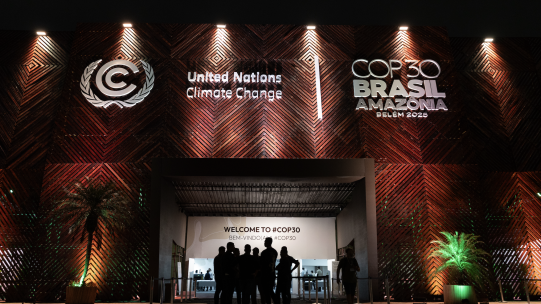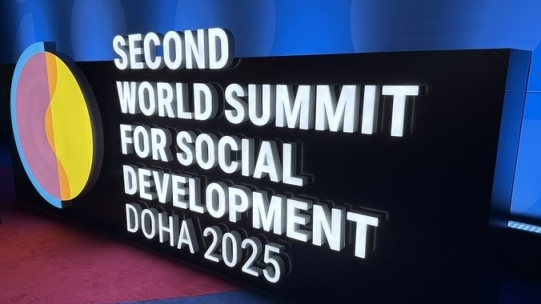Global Country Networks Spotlight: Events During UNGA79
Read more

Global Country Networks Spotlight: Events During UNGA79
Every year, tens of thousands of government officials, diplomats, heads of state, business leaders, journalists and representatives from international organizations come together in New York for High-Level Week of the UN General Assembly (UNGA).
This year, at UNGA79, discussions focused on the Pact for the Future, a framework aimed at tackling global challenges like climate action, technological governance and human security.
Amongst conversations envisioning a better future, the Global Compact Country Networks convened thousands to explore ways businesses can advance the SDGs, or the Sustainable Development Goals.
Global Compact Country Networks advance the initiative and its Ten Principles at the country level. They help companies understand what responsible business means within different national, cultural and language contexts and facilitate outreach, learning, policy dialogue, collective action and partnerships.
During UNGA79, Global Compact Country Networks Australia, Brazil, Bulgaria, Canada, Finland, France, Georgia, Greece, Italy, Nigeria, Saudi Arabia, Serbia, Spain, Sweden, Switzerland & Liechtenstein, Türkiye, UK, USA, plus the China office hosted a variety of thought-provoking events focused on sustainability, corporate accountability and innovation.
Read on to learn more about these impactful events.
- CEO Roundtable Nordic Reception at UNGA
- Digitalization for Good & ESG Reporting Standards – Bridging the Gap for a Sustainable Future
- China CEO Roundtable
- SDG Summit USA
- Reception for Canadian Businesses Committed to the SDGs
- Putting UK Business at the Heart of the Summit of the Future
- SDGs in Saudi Arabia
- Corporate Sustainability Reporting Frameworks: Synergies & Opportunities for AI Integration
- European SDGs Barometer Restitution
Digitalization for Good & ESG Reporting Standards – Bridging the Gap for a Sustainable Future
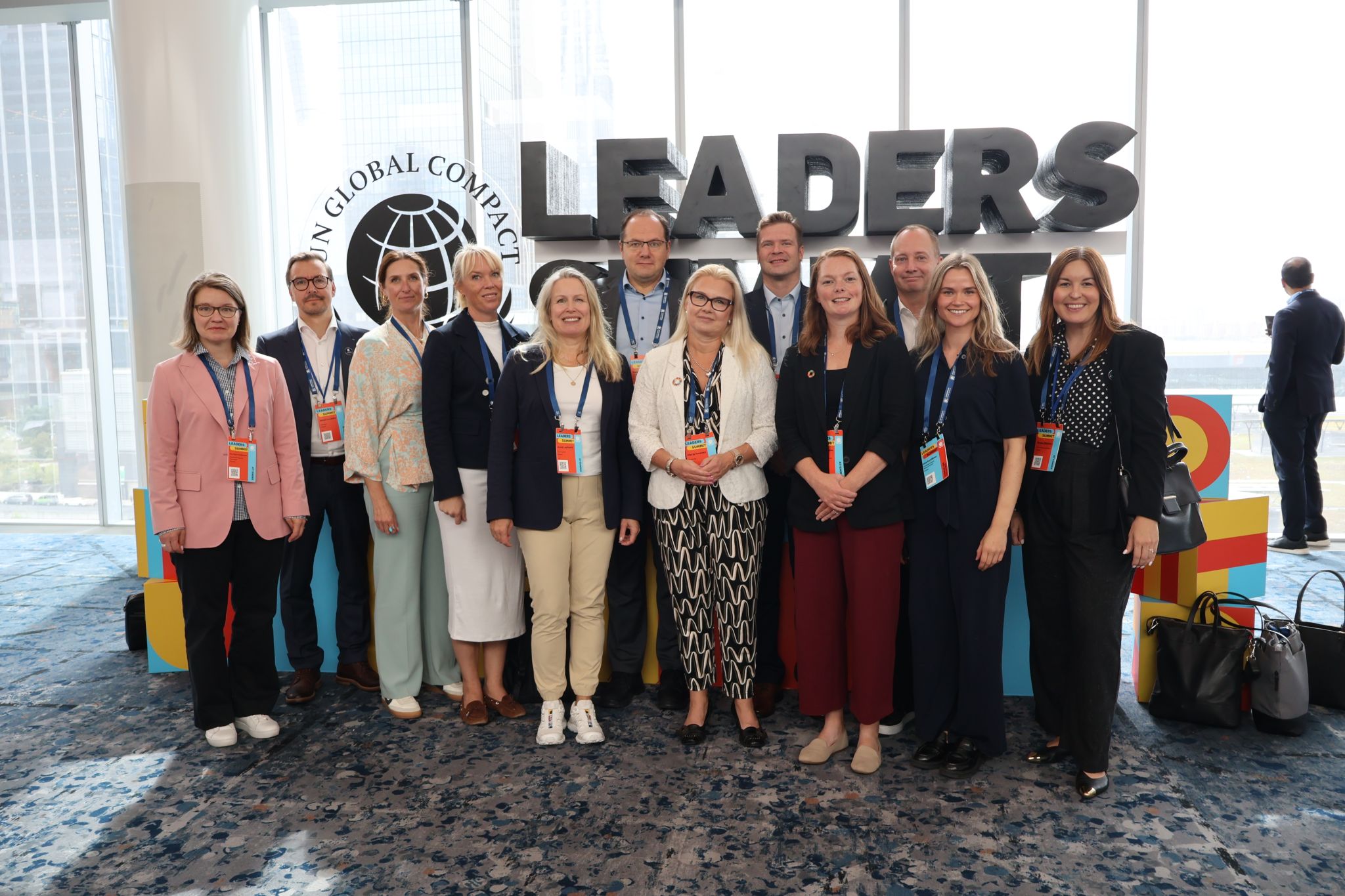
Finnish business delegation participated in various events during UNGA79, including Leaders Summit and Digitalization for Good & ESG Reporting Standards – Bridging the Gap for a Sustainable Future
The Digitalization for Good & ESG Reporting Standards event revealed the potential of high-level international collaboration to find innovative digital solutions to advance the SDGs and explore global frameworks for the environmental, social, and governance (ESG) reporting standards.
Takeaways:
- Digitalization offers critical solutions for achieving the SDGs, particularly by using AI to enhance data-driven decision-making
- Increased financial investments are crucial to achieving the SDGs by 2030, with a funding gap of $3-5 trillion annually
- While labor-intensive, the Corporate Sustainability Reporting Directive (CSRD) enhances accountability and transparency, although concerns remain about its practical implementation
Corporate Sustainability Reporting Frameworks: Synergies & Opportunities for AI Integration
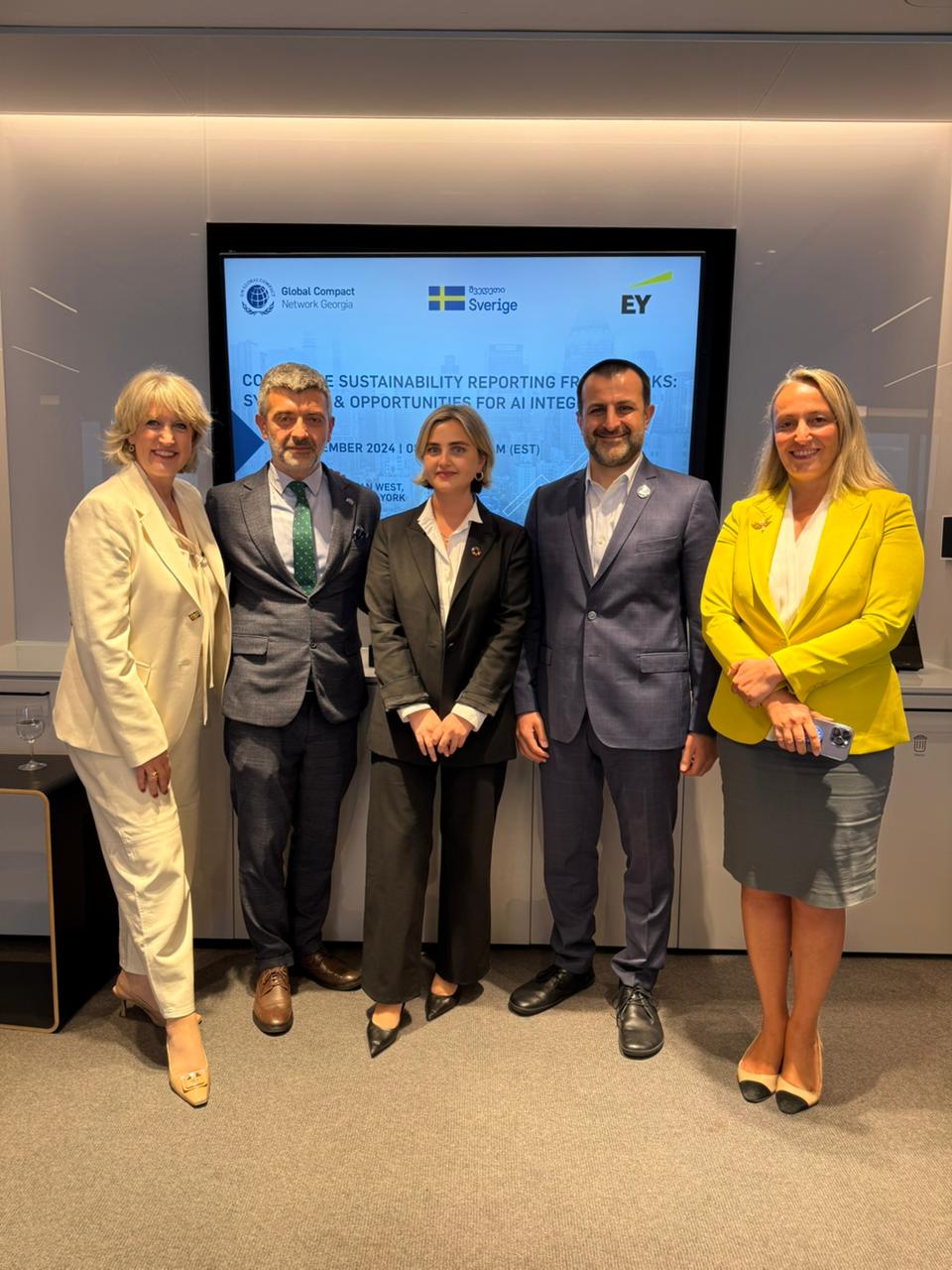
Hosted by Global Country Network Georgia, the Corporate Sustainability Reporting Frameworks event drew attention to the evolving landscape of corporate sustainability reporting frameworks, emphasizing AI’s role in streamlining these processes. Specifically, attendees gained insights into various reporting standards.
Takeaways:
- Participants learned about international sustainability reporting standards and their alignment across regions
- AI was spotlighted for its potential to simplify reporting processes and enhance compliance
- Collaboration among companies and regulatory bodies is vital to navigating the complexities of sustainability reporting
European Private Sector SDGs Stocktake – Restitution Event
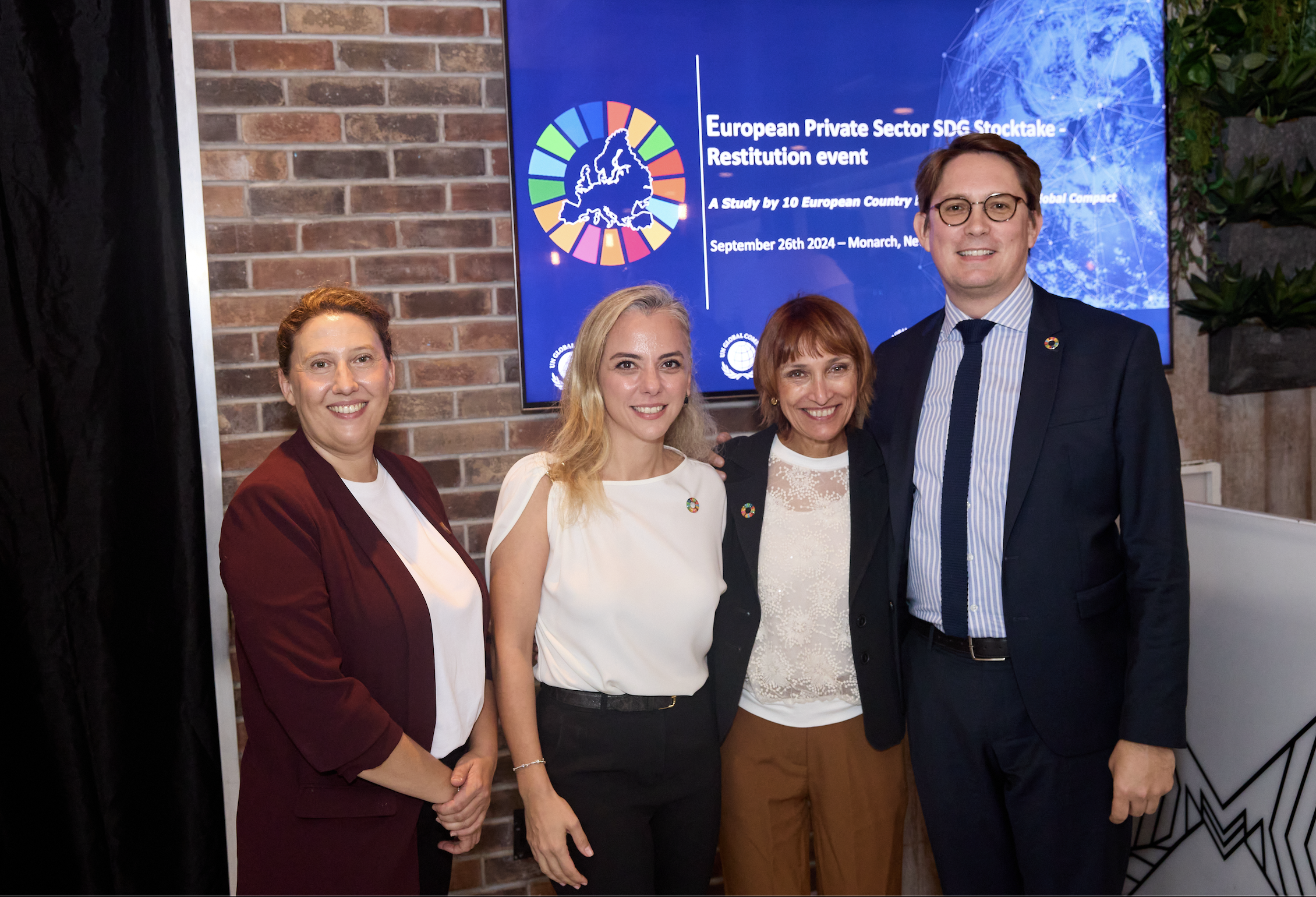
Cristina Sánchez, Co-Chair of the Global Network Council and Executive Director of Network Spain, Melda Çele, Executive Director of Network Türkiye, Daniela Bernarcchi, Executive Director of Network Italy, Nils Pedersen, Executive Director of Network France
The first European Private Sector SDGs Stocktake event embodied the importance of collaboration. Over ten Global Country Networks came together to celebrate the report featuring high-level panel discussions on how the SDGs serve as a competitive framework for businesses, as well as their role in fostering economic success.
The European Private Sector SDGs Stocktake was developed by the Global Country Networks: France, Spain, Turkiye, Italy, United Kingdom, Switzerland & Liechtenstein, Greece, Serbia, Bulgaria and Ireland.
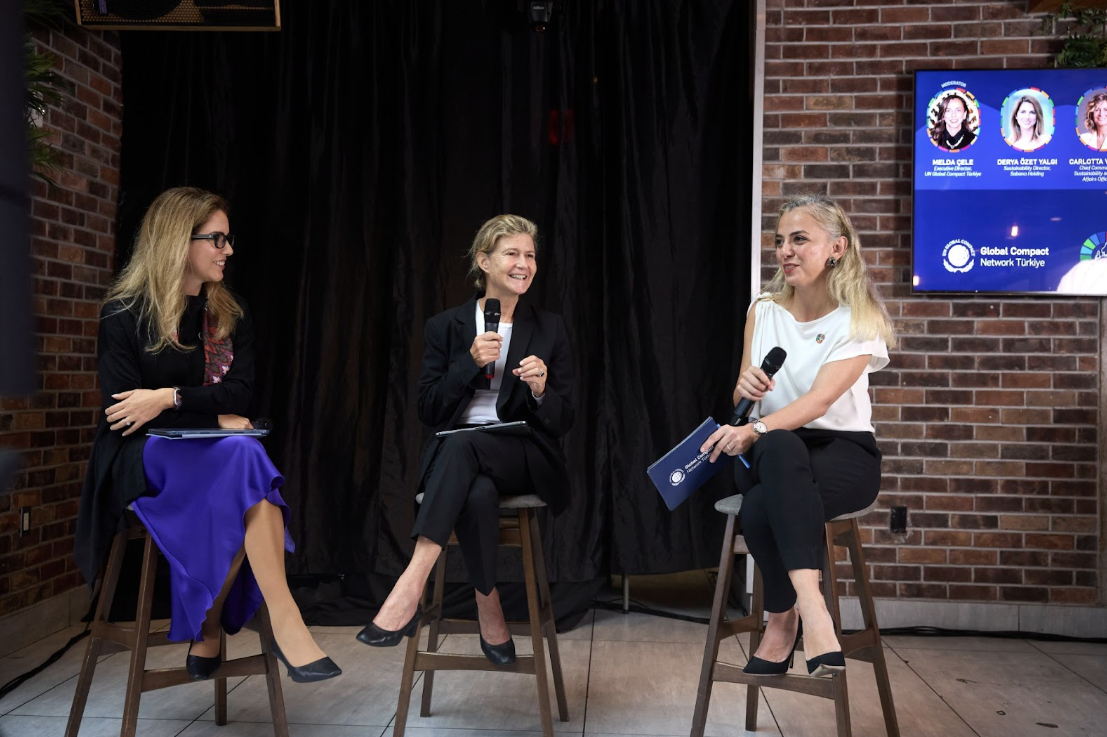
Derya Özet Yalgı, Sustainability Director at Sabancı Holding, Carlotta Ventura, Chief Communication, Sustainability and Regional Affairs Officer at A2A and Melda Çele, Executive Director of Network Türkiye – panel discussion on “From Targets to Transformation: Measuring, Evaluating and Reporting SDG Impact for Business Success”.
Takeaways:
- The SDGs provide a common language to help businesses prepare for evolving European regulations
- 58% of companies reported improved economic performance through SDG integration, while 78% noted a competitive advantage
- Despite the progress, only 33% of companies have specific, measurable goals for SDG contributions, and just 26% include comprehensive sustainability reporting
CEO Roundtable: Collaborating for a Sustainable Future by Turning Climate Risks into Business Opportunities
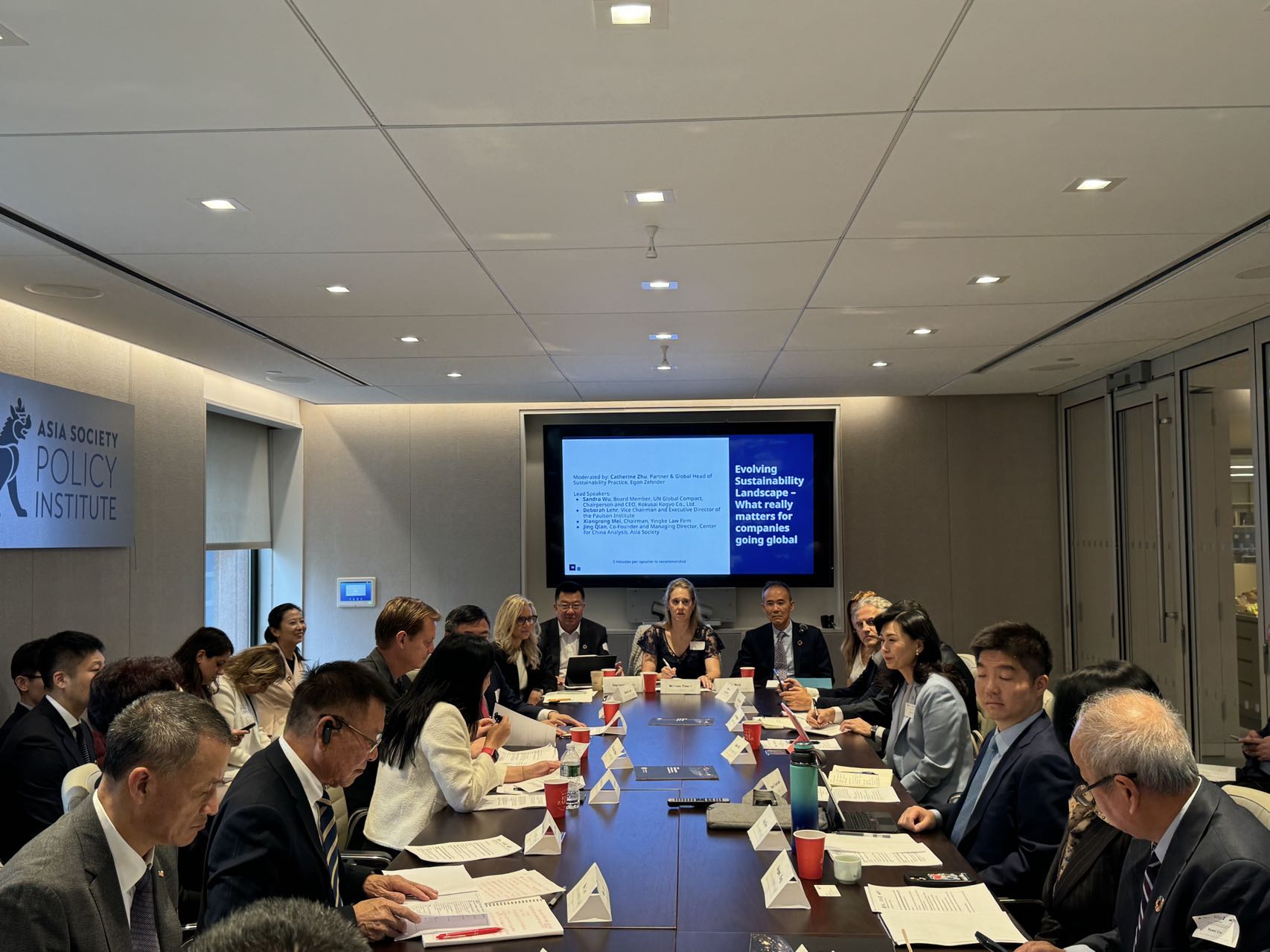
The Global Compact China Office convened 30 global business leaders to discuss how the private sector can address climate risks while seizing business opportunities. Held during Climate Week and the Summit of the Future, the event emphasized the importance of storytelling and localized capacity-building to achieve global success. Narrative and holistic approaches across sustainability have become a significant part of discussions, and this event speaks to that assertion.
Takeaways:
- Storytelling is essential for building global partnerships and trust
- Localized capacity-building, illustrated by a Chinese law firm’s efforts in Africa, is crucial for long-term sustainable partnerships
- Adapting to local contexts is key, as highlighted by the three stages of Japanese businesses expanding globally
SDGs in Saudi Arabia: How is the Private Sector Leading the Sustainability Charge?

This reception organized by Global Country Network Saudi Arabia showcased the significant strides made by the private sector in aligning with the SDGs. Key topics included corporate sustainability achievements, the circular economy and preparations for COP16 on Desertification. The Desertification COP takes place from 2-13 December 2024 in Riyadh, Saudi Arabia and will be the largest-ever meeting of UNCCD’s 197 Parties and the first to be held in the Middle East region.
Takeaways:
- Global Country Network Saudi Arabia saw an 80% growth this year, reflecting increased corporate sustainability momentum
- Strong emphasis on circular economy initiatives and private sector engagement for COP16
- A collective commitment to sustainability is a key driver of future business growth
Reception for Canadian Businesses Committed to the SDGs
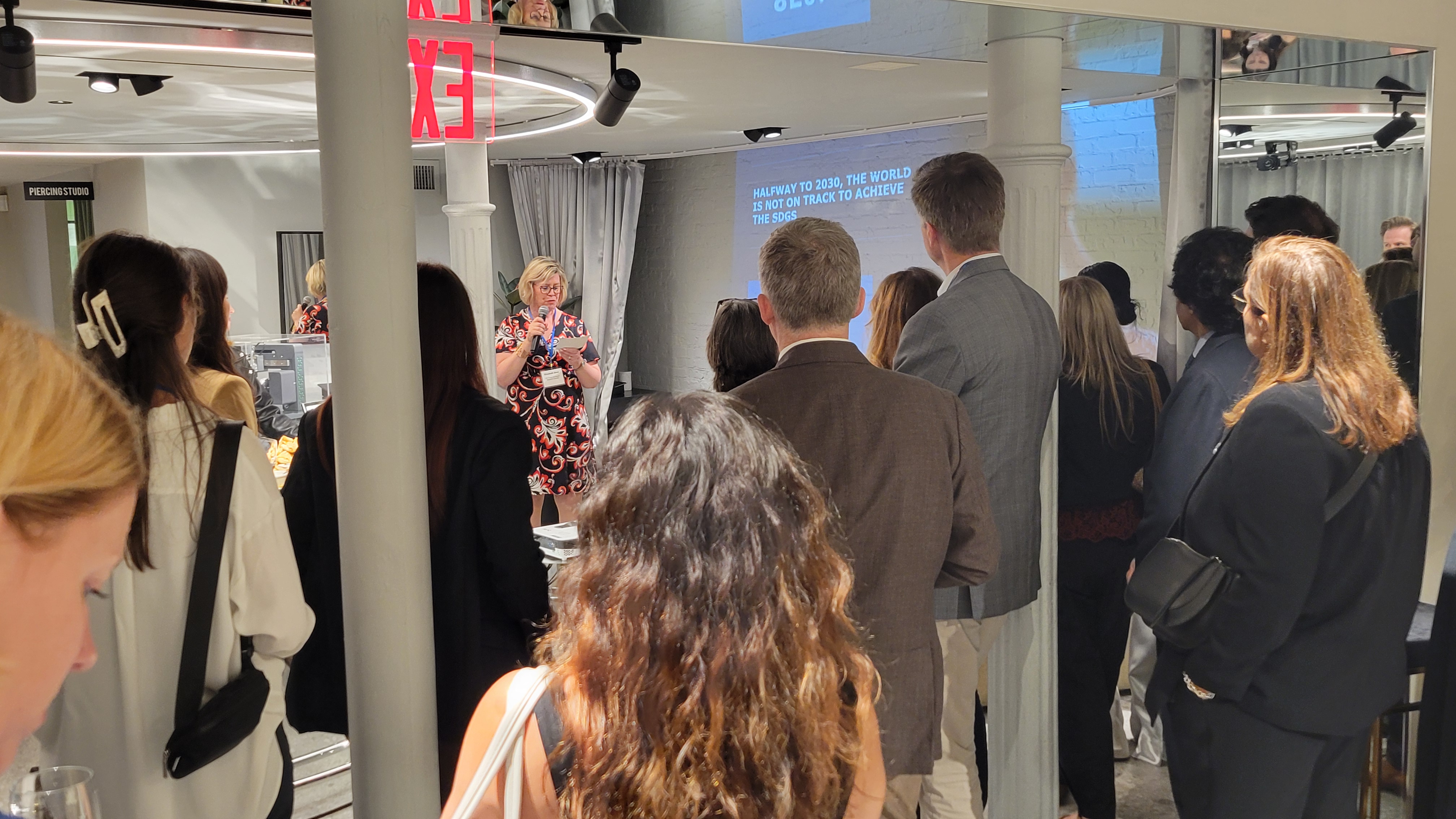
In partnership with the Consulate General of Canada and hosted by Canadian jewelry brand Mejuri, the event brought together Canadian companies from Global Country Network Canada to highlight ambitious actions in support of SDG targets. Attendees had the opportunity to connect with sustainability professionals and like-minded businesses, while learning about Network Canada’s initiatives within the global context of the UN Global Compact.
Takeaways:
- Canadian businesses are deeply committed to sustainability
- Government support is crucial for advancing sustainable business initiatives
- The event fostered a strong sense of community amongst Canadian companies, with a focus on discussing challenges and progress on sustainability initiatives
UN Global Compact Nordic CEO Roundtable: United Nordic Businesses for a Just and Green Transition
Organized by Global Networks Sweden and Finland, the Nordic CEO Roundtable gathered business leaders to discuss how collaboration could advance a just and green transition. With a focus on the importance of value chain signals, carbon pricing and supporting vulnerable communities, the roundtable stressed the need for a collective approach to sustainability challenges.
Takeaways:
- Collaboration across industries is crucial to accelerate the green transition and share risks
- Clear value chain signals and purchasing power are key to driving low-carbon investments, particularly by supporting SMEs
- A just transition requires investing in re-skilling and community support to ensure that no one is left behind
SDG Summit USA: U.S. Private Sector Leadership in Sustainable Development
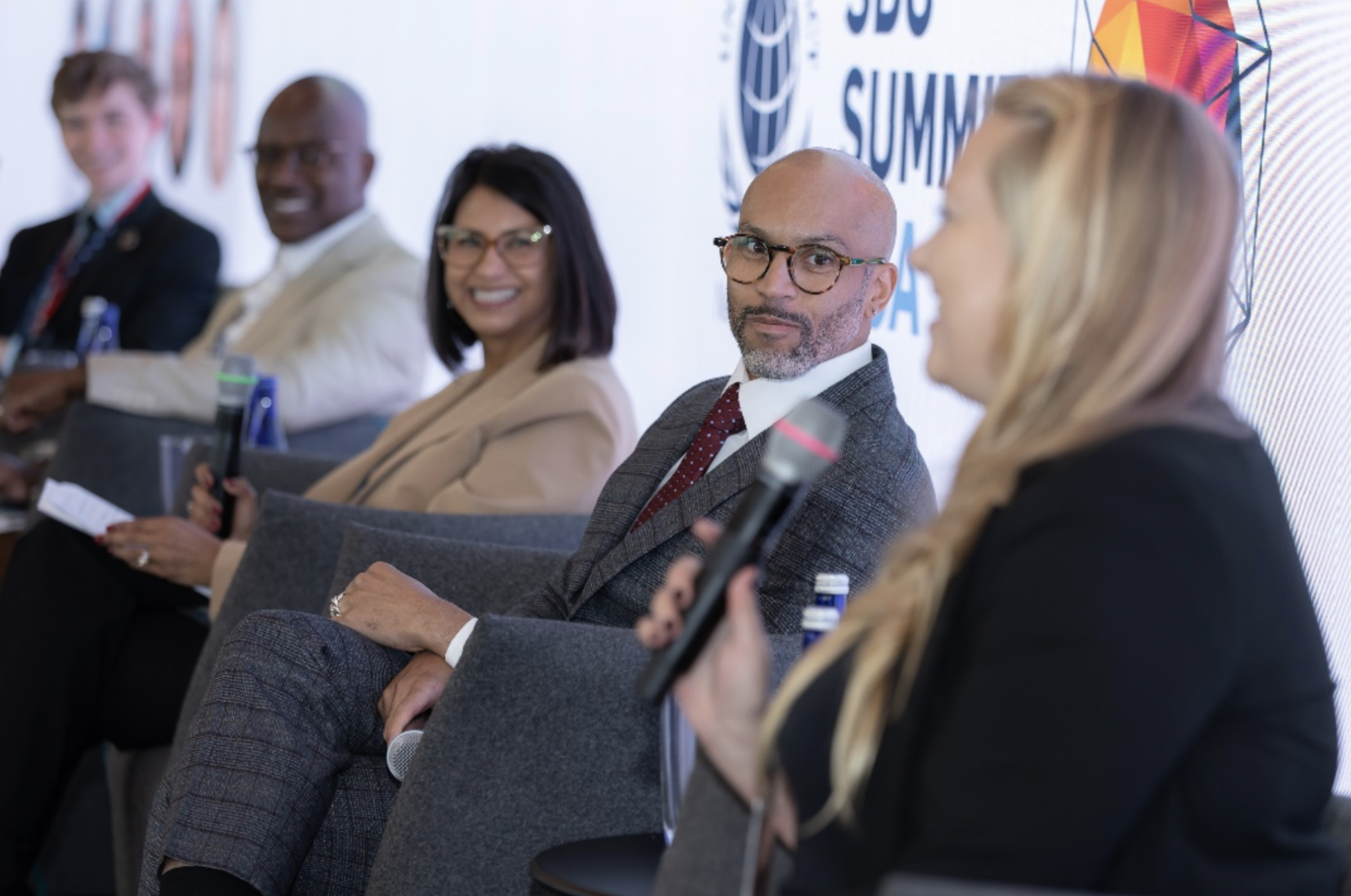
Noah Smith (Network USA), Garfield Bowen (3M), Judy Castaño (Munters), Randall Tucker (Mastercard), and Bex Hall (Sedex) on a panel called, “Cultivating Inclusion: DEI Initiatives for Sustainable Growth in the American Private Sector”
The SDG Summit USA is the annual flagship event of Global Compact Network USA and the only conference of its kind held during the United Nations General Assembly that focuses on celebrating the successes of the U.S. private sector in sustainability. Participants ranged across fields with over 200 representatives from leading global companies, the U.S. Government, the United Nations and civil society all in attendance to explore how American businesses can further advance the 2030 Agenda for Sustainable Development.
Takeaways:
- The U.S. private sector has significant potential to accelerate progress on the SDGs by leveraging its leadership, influence and successes
- Resources from the UN Global Compact and collaborators are helping companies standardize reporting and materiality assessments, enabling businesses to better track and measure sustainability progress
- Roundtables on critical topics such as food security, circularity, health equity, supply chains and AI led to valuable information sharing and best practices that attendees could implement within their organizations
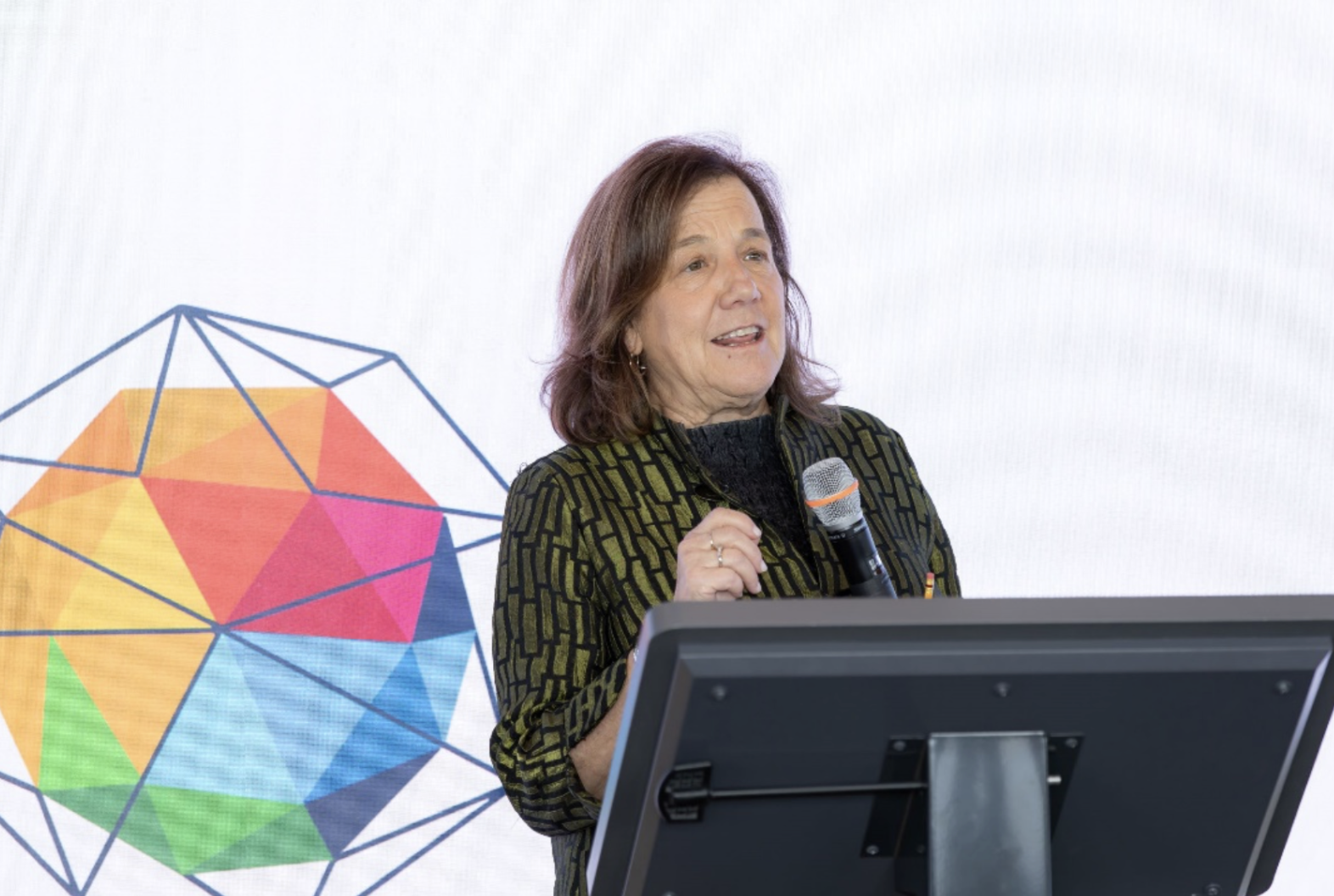
Mindy Lubber, President and CEO of Ceres providing opening remarks as opening keynote speaker
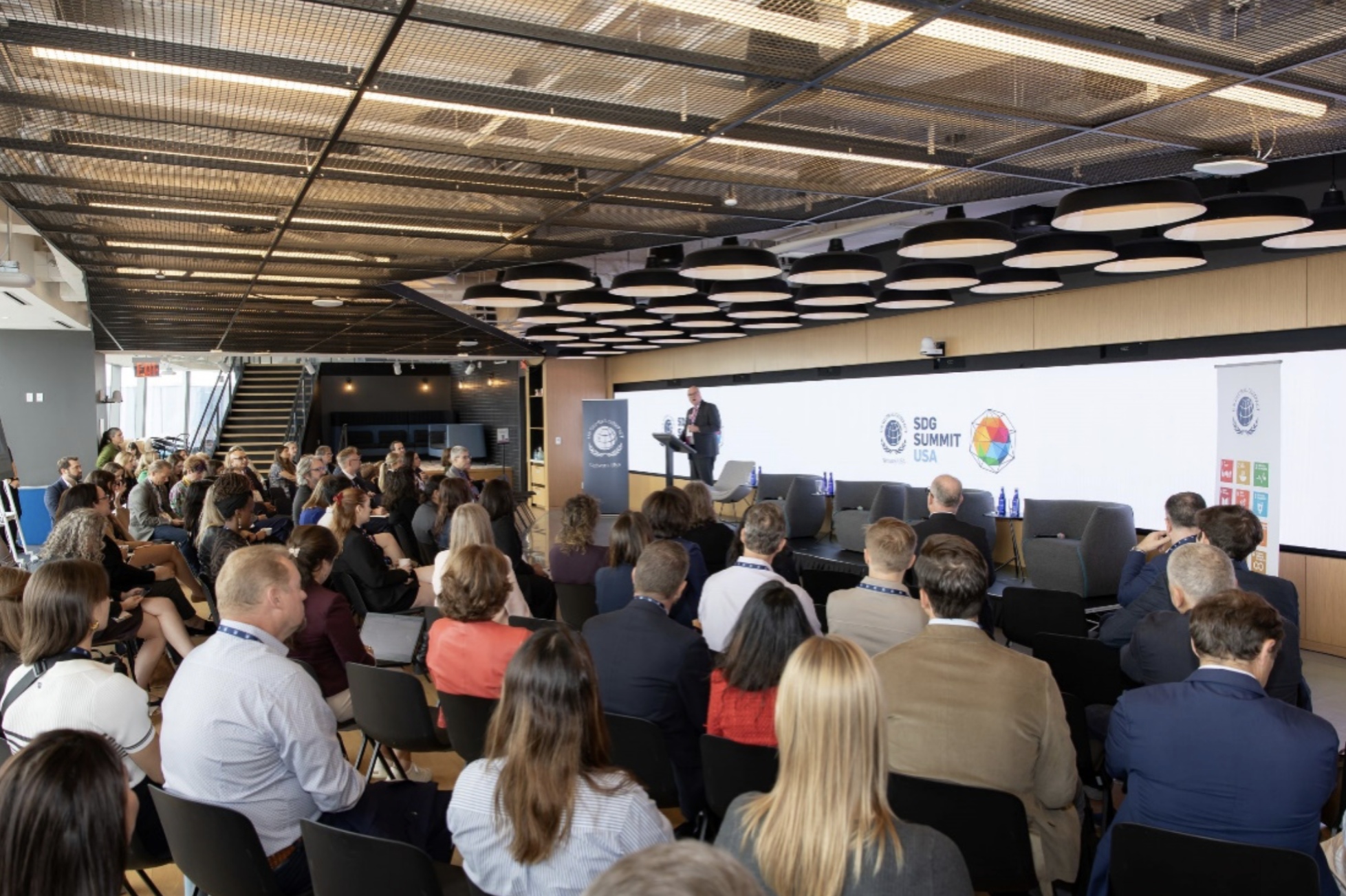
Richard Pearl, Acting Executive Director for Global Compact Network USA, providing opening remarks at the start of SDG Summit USA
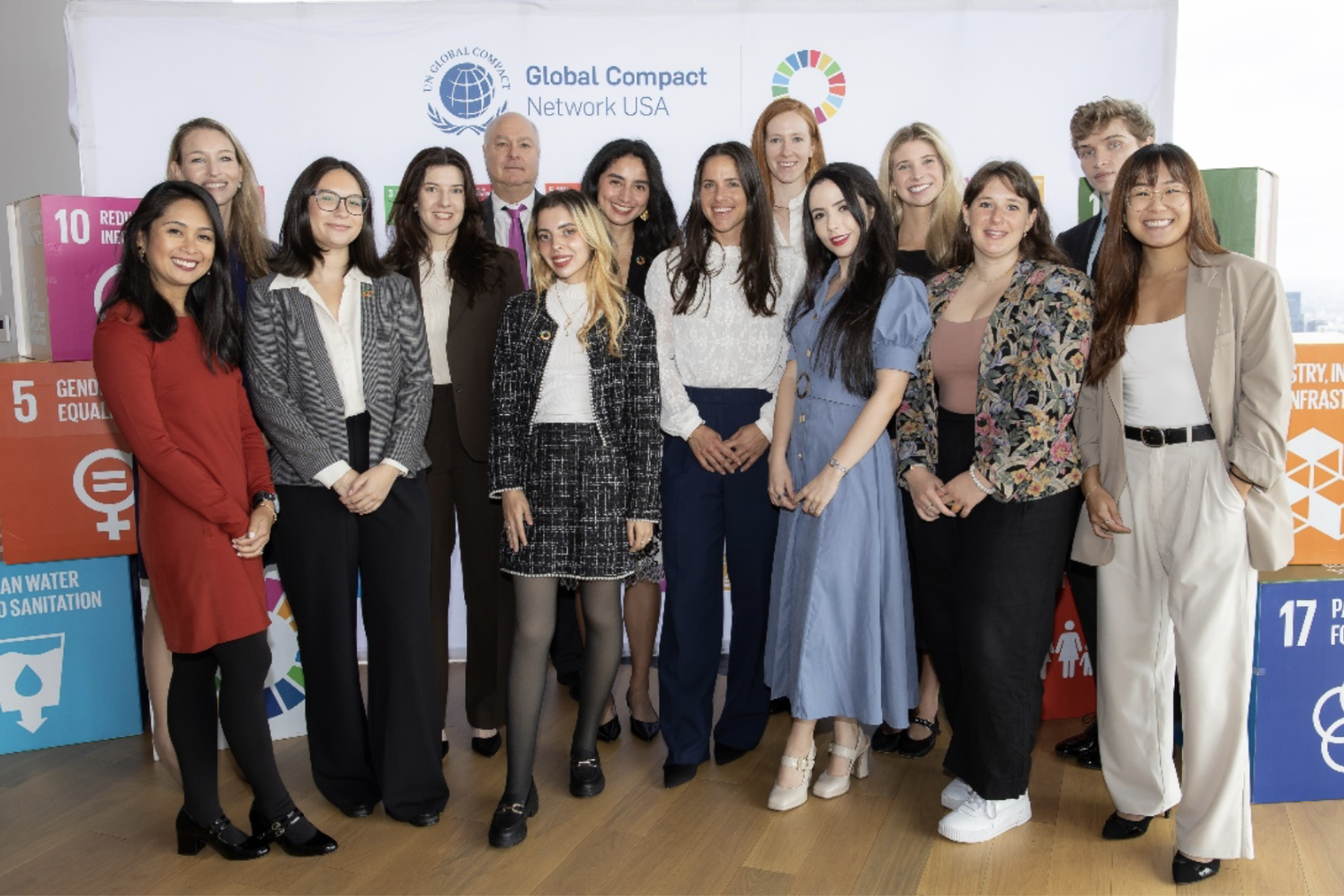
Network USA Group Staff Photo
Jessica Tuquero, Lucy Barry, Caitlin McGinnis, Lena Marie Lee, Richard Pearl, Natalie Tasci Srour, Alyssa Cortez Peralta, Christine Cavallo, Erin Reelick, Claudia Herbert Colfer, Mallory Cannon, Alyssa Macaluso, Noah Smith, and Jacy Chan
‘Putting UK Business at the Heart of the Summit of the Future’ Networking Reception
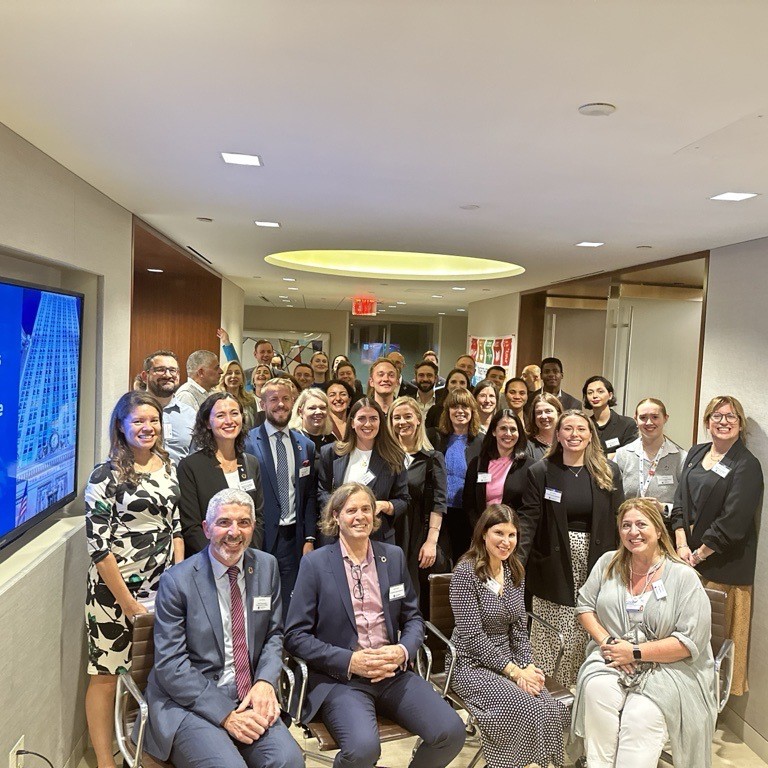
On the sidelines of the UN General Assembly, the Global Compact Network UK hosted a networking reception, bringing together key stakeholders from business, civil society and policy. The event focused on how the UK private sector can lead in achieving the SDGs and the Pact for the Future. The UK’s leadership in SDG-related research was also highlighted, with calls for a second Voluntary National Review.
Takeaways:
- UK companies are positioned to lead in delivering the 2030 Agenda
- 30% of global SDG research originates in the UK, underscoring its leadership in sustainability
- Wales, with a population of 3 million, is standing tall in thought leadership for future generations surrounding sustainability and progressions of the SDGs
Conclusion
From sharing innovative strategies to aligning efforts, the Global Compact Network events during UNGA79 demonstrated the immense potential of global collaboration to create unified business leadership to drive change.
Though the events spanned industries, regions and sectors, one thing remains clear: the private sector plays a pivotal role in building a sustainable, inclusive future.
The inclusion of company names and/or examples is intended strictly for learning purposes and does not constitute an endorsement of the individual companies by the UN Global Compact.
